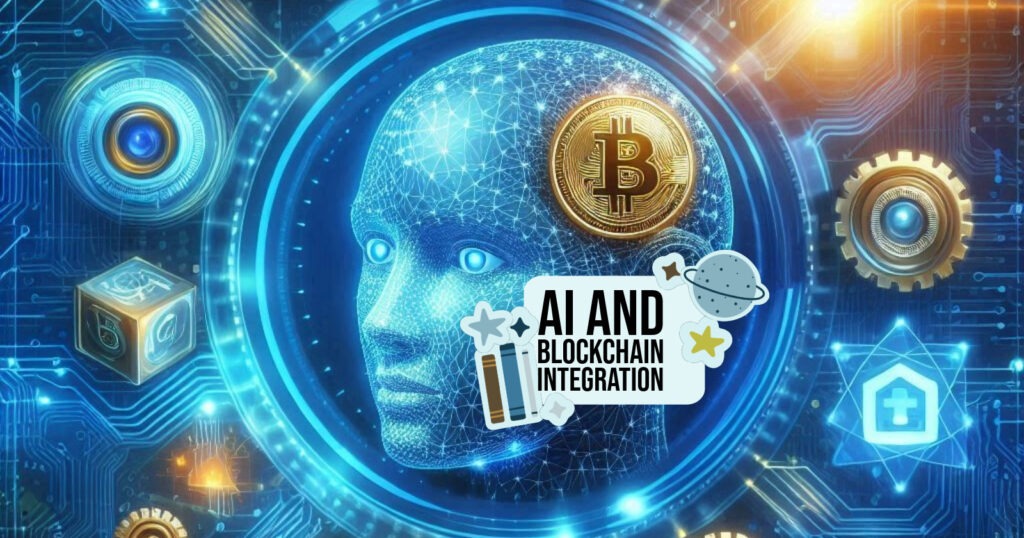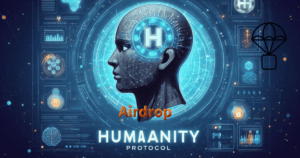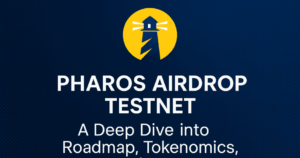
AI and Blockchain Integration: The Future of Decentralized Tech : In the rapidly evolving world of technology, Artificial Intelligence (AI) and blockchain are two of the most groundbreaking innovations. Individually, they have transformed various industries, from finance to healthcare. However, the integration of AI and blockchain is poised to revolutionize the digital landscape further, creating unprecedented opportunities for innovation, security, and decentralization. This fusion is more than just a trend—it’s the future of decentralized tech.
Understanding AI and Blockchain
What is AI?
Artificial Intelligence refers to the simulation of human intelligence in machines. These systems are designed to think, learn, and make decisions autonomously. AI applications range from simple chatbots to advanced machine learning algorithms that can predict market trends or diagnose diseases.
What is Blockchain?
Blockchain is a decentralized ledger technology that records transactions across multiple computers in a way that ensures security and transparency. Each block in the chain contains a list of transactions, and once recorded, these transactions cannot be altered. This immutability makes blockchain ideal for applications requiring trust and security, such as cryptocurrency transactions and smart contracts.
The Synergy of AI and Blockchain
Enhancing Data Security and Privacy
One of the primary benefits of integrating AI with blockchain is enhanced data security and privacy. AI systems require vast amounts of data to function effectively, but this data is often sensitive and prone to breaches. Blockchain’s decentralized nature ensures that data is stored securely across multiple nodes, reducing the risk of centralized data breaches.
- Example: Ocean Protocol uses blockchain to securely share and monetize data, while AI analyzes and extracts value from the shared data, maintaining privacy and control.
Decentralized Intelligence
By combining AI with blockchain, we can create decentralized intelligence systems that operate without a central authority. This approach not only democratizes access to AI but also ensures transparency and fairness in decision-making processes.
- Example: SingularityNET is a decentralized AI marketplace where developers can buy and sell AI services using blockchain technology. This platform ensures that AI algorithms are transparent and accessible to all.
Improved Data Integrity for AI Models
AI models require high-quality, trustworthy data to provide accurate insights. Blockchain technology can validate the provenance and integrity of data used in AI models, ensuring that the data is reliable and unaltered.
- Example: IBM’s Watson AI integrates with blockchain to verify the source and accuracy of data, enhancing the reliability of its AI-driven insights.
Smart Contracts with AI Capabilities
Smart contracts are self-executing contracts with the terms directly written into code. Integrating AI into smart contracts can enable more complex and adaptive agreements that automatically adjust terms based on AI-driven insights or external data.
- Example: In DeFi (Decentralized Finance), AI-powered smart contracts can dynamically adjust interest rates or collateral requirements based on real-time market conditions, optimizing financial transactions and reducing risk.
Applications of AI and Blockchain Integration
Supply Chain Management
AI and blockchain together can transform supply chain management by providing end-to-end visibility and automating processes. Blockchain ensures the transparency and traceability of goods, while AI can predict demand, optimize routes, and manage inventory efficiently.
- Example: VeChain uses blockchain to track the entire lifecycle of products, from manufacturing to delivery. AI algorithms analyze this data to improve supply chain operations and predict future demand.
Healthcare and Personalized Medicine
In healthcare, AI and blockchain can ensure the secure sharing of patient data, provide personalized treatment plans, and streamline medical research. Blockchain secures patient records, while AI analyzes these records to recommend treatments or identify health trends.
- Example: Medicalchain leverages blockchain to store and share electronic health records securely. AI applications analyze these records to provide personalized healthcare solutions.
Financial Services and Fraud Prevention
Blockchain’s transparent ledger system combined with AI’s ability to detect anomalies can significantly reduce fraud in financial transactions. AI models can analyze transaction patterns to identify and flag suspicious activities, while blockchain provides a secure record of these transactions.
- Example: Chainalysis uses blockchain analytics to trace and monitor cryptocurrency transactions, helping financial institutions prevent fraud and comply with regulations.
AI and Blockchain Integration: The Future of Decentralized Tech
Future Prospects
The integration of AI and blockchain is still in its early stages, but its potential is vast. As these technologies mature, we can expect to see more sophisticated applications and innovations that will reshape industries and enhance the way we interact with digital systems.
Key Areas to Watch
- DeFi and AI-powered Financial Tools:
- Expect growth in decentralized finance platforms using AI to offer personalized financial services, predictive analytics, and automated trading.
- Decentralized AI Networks:
- Decentralized AI networks will become more prominent, offering transparent and community-driven AI services that democratize access to cutting-edge technology.
- AI-Enhanced Smart Contracts:
- The development of AI-enhanced smart contracts will lead to more adaptive and intelligent agreements, useful in areas like legal tech and automated business processes.
Read More
Conclusion
The convergence of AI and blockchain technology represents a paradigm shift towards a more secure, transparent, and decentralized digital future. By leveraging the strengths of both technologies, we can unlock new possibilities and create innovative solutions that address the complex challenges of today and tomorrow. As AI and blockchain continue to evolve and integrate, they will redefine the boundaries of what’s possible in the digital world.
Frequently Asked Questions (FAQs)
1. How does the integration of AI and blockchain enhance data security?
The integration of AI and blockchain enhances data security by leveraging blockchain’s decentralized and immutable nature, which ensures that data is securely stored across multiple nodes. This reduces the risk of centralized data breaches, while AI algorithms can analyze this secure data to provide insights without compromising privacy.
2. What are some real-world applications of AI and blockchain integration?
Real-world applications of AI and blockchain integration include:
- Supply Chain Management: Using blockchain for transparency and AI for optimizing logistics and inventory.
- Healthcare: Securing patient records with blockchain while AI provides personalized treatment recommendations.
- Financial Services: Combining blockchain’s secure transaction records with AI’s fraud detection capabilities to prevent financial crimes.
3. How can AI improve the functionality of smart contracts?
AI can enhance smart contracts by making them more adaptive and responsive to real-time data. AI algorithms can analyze market conditions or external data and automatically adjust the terms of the contract, such as interest rates or collateral requirements, thus optimizing financial transactions and reducing risks.
4. What future developments can we expect from AI and blockchain integration?
Future developments in AI and blockchain integration may include:
- Advanced DeFi platforms: Offering AI-driven financial services and automated trading.
- Decentralized AI marketplaces: Enabling community-driven AI services that are transparent and accessible.
- AI-enhanced smart contracts: Facilitating more complex and intelligent contractual agreements.
Latest Post

